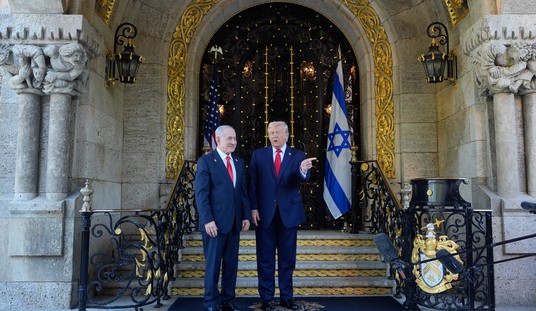
Government does not offer anybody anything unless it first takes from somebody. The more the government takes, the less freedom incurred. As the political process drives the federal government into areas beyond its expertise and beyond its principal mission- the protection of liberties, national defense, public safety- the less well it performs those missions. Modern history of the American bureaucratic, administrative state is rife with examples.
The concept of limited government upholds the rule of law and our founding principles on behalf on an entire society, not subsets of that society. To the benefit of all citizens, it especially protects the weakest and the most vulnerable. By maintaining public safety, law and justice, government makes sure that healthy societal relationships centered around family, church and community can thrive. America has strayed far off that path. In some circles, they are even denigrated.
So why should conservatism insist on limited government as one of its main guiding principles? A limited government, first and foremost, ensures freedom and liberty and lays the groundwork for a free society. It maximizes opportunity and creativity. Most of the great inventions were the result of that freedom, not government intervention or subsidies. Limited government allows us to go as far as we want with our ambitions and dreams. It strengthens those civic, business and community-based associations that Alexis de Tocqueville in the 1830’s realized were the bedrocks of American democracy, liberty and self-reliance. History has shown that a government confined to particular, but critical, functions are the best while outside those functions, we should be left the hell alone.
Today, we live not in a republic, but in an administrative state. This refers to the structure of our government- not its size, its spending, the number of entitlements, or some concept of “Big government.” Instead, it describes a massive delegation of powers and discretion to administrative agencies. They are a legislature, judge and executive all unto themselves AND all largely not elected, or not even subject to Congressional confirmation. But, what Congress delegates, Congress can reclaim. A good portion of the problem could be abated if Congress would stop delegating its powers away. No regulatory scheme would necessarily be eliminated, but at least it would have the sanction of elected representatives.
The origins of the administrative state are rooted in the Progressive era. They believed that a concept of limited government may have worked fine at the time of our founding, but a changing view of government had to necessarily follow a changing world. As Woodrow Wilson stated: “Government does now what experience permits or the times demand.” One can say that the steady decline of freedom started under Wilson.
This belief was carried forth by Roosevelt’s New Deal which created a huge bureaucracy to meet the demands of the time. Roosevelt personified the modern progressive philosophy: never waste a crisis. Since these agencies reside within the Executive branch and have de facto legislative functions, there is a serious separation of powers question which the Supreme Court, before 1935, recognized. But after 1935, the Court placed its stamp of approval on this new state of affairs.
In 1946, Congress passed the Administrative Procedures Act to place some checks on this new power of agencies. That law has largely been circumvented and has not been updated since its passage- a “going through the motions” exercise and little else. Lest we hope a more conservative Supreme Court step in, it was the Rehnquist Court that decided they would not revisit the issue when they gave their stamp of approval to the Sentencing Commission. That case served notice that the Court was not going to bring back into question the separation of powers issue decided back in 1935.
That ruling, and others, work under the proposition that administrative agencies possess the unique technical expertise to formulate rules and that for Congress to delve into the minute details of proposed rules would be counterproductive. To see how ingrained this notion is today, one should be reminded of the 2000 decision in FDA vs. Brown & Williamson when the Court ruled that before the FDA can make regulations on tobacco, Congress must first delegate them that authority. The decision was vehemently denounced by progressives who feared tobacco state representatives would derail anything and instead preferred the experts at the FDA to have carte blanche in making these rules.
Nowhere is the absence of limited government and its bad effects more evident than in the War on Poverty. It starts from a flawed line of reasoning that poverty is strictly a material issue. Hence, it can be solved simply through more spending. But, we know that it is a deeper problem- it is relational, rife with fatherless families, and community breakdown. Families, churches, business and voluntary associations form a strong bulwark against poverty, yet government programs weaken these institutions instead of respecting them. Since 1965, close to $16 trillion has been spent on eradicating poverty to no effect. We have spent billions on education to improve outcomes to no effect. Moreover, the War on Poverty has increased the rate of out-of-wedlock birth from 7% to 41% nationally, and a disgraceful 70% among the black population.
Limited government is an important piece of the framework to lessen poverty in this country. When limited to its delegated, authorized tasks, government gets out of the way of true poverty-fighting institutions. Limited government is crucial to maintaining social order and laying the groundwork for a pathway out of poverty.
Unfortunately, conservatism has drifted away from limited government as one of our basic principles. We are portrayed as the naysayers, more apt to rant about government run amok. Conservatives cannot boast about limiting government either because elected officials have been complicit accomplices in the rise of the administrative state and accompanying government spending and regulatory schemes. Today, conservatism can only boast that they decreased the rate of spending, but not actual spending. Even under the last true conservative President- Ronald Reagan- the government budget ballooned. The apparent “victory” turned into a long-term retreat.
And it IS an admittedly hard task. If it were easy, it would have been accomplished by now. Liberalism’s pitch,- we want the government to provide and do things for you- the New Deal/Great Society mantra has never gone out of style. Conservatism has instead adopted a philosophical or intellectual argument that, however true, falls on deaf ears. And liberals do not have to sell a welfare state to a gullible public all at once. Every entitlement creates its own constituency and each constituency will, in self-interest, seek to expand the entitlement and benefits under it to the point that they drown out the voices of reason. This is evident in education, welfare programs, agriculture, labor, etc. This conglomeration of political forces created by liberals forces the growth of government outwards.
So what to do to reverse these trends? First, conservatism must put a human face on limited government or, in the alternative, put an ugly face on unlimited government (example: Venezuela, Cuba, etc.). We must showcase limited government at the state and local level and the effect it has had on the lives of real people. Surely, the liberals will find the exceptions to the rule and trot out their sob stories.
Second, we need to stop debating the finer points of government expansion and instead show how government, as a share of personal income, is consuming 5-6 times the amount it did a century ago. More importantly, what have these increased expenditures bought us? We should demand of liberals at what point is enough reached. How much fundamentally and rightfully belongs to the individual?
Third, we need to stop the grandstanding at times. Tell me: other than heaping scorn on officials, have defunding or government shutdown threats or Congressional oversight hearings achieved any result towards a more limited government?
Fourth, we must insist on a stoppage in the growth of government. Trump’s idea that for every new regulation, two must be dropped is a nice start. But, it does not go far enough and does not necessarily consider costs. A regulation that adds $1 million in costs while eliminating two that reduce costs $750,000 is not progress.
Fifth, we must realize that the exact opposite of big government is no government. That is obviously not what we seek. Instead, we seek a more competent government. Creating a national council along the lines of the military’s base closing effort to eliminate costly, ineffective, overlapping and obsolete programs may be a good step forward (do we really need a US Geological Survey office?). Of course, Congress- if they did their jobs- has that power and authority now. We must realize that government is going to stay larger than it was in 1929; that is a simple fact of political life. However, it must be more responsible.
Sixth, we must elect people dedicated to these principles. The question is whether we adopt a limited government philosophy akin to Jeffersonian ideals, or those more closely aligned with the ideals of Hamilton. If they fail once elected, then perhaps the Republican Party should strip them of endorsement, or we- the true conservatives- turn our backs on them. Action, not words, will reverse the trend and restore government to its rightful role.













Join the conversation as a VIP Member